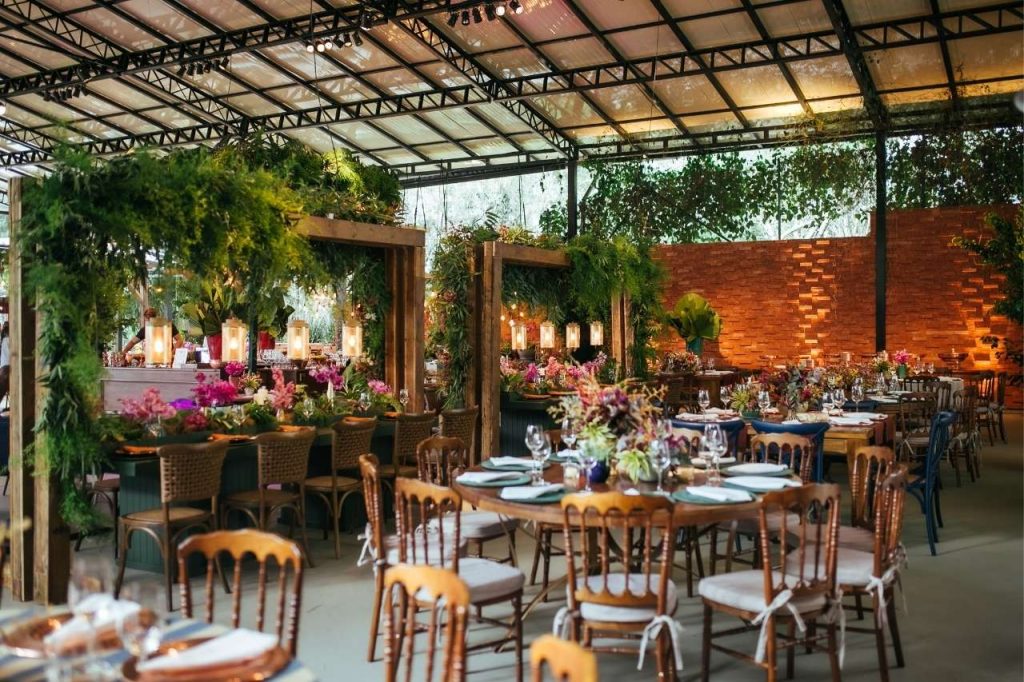Blog
The Ultimate Guide to Seamless Event Planning in Malaysia
The Ultimate Guide to Seamless Event Planning in Malaysia
Event planning can be an exhilarating yet daunting task, especially when navigating the cultural diversity, logistics, and expectations unique to Malaysia. Whether you’re organizing a corporate conference in Kuala Lumpur, a destination wedding in Langkawi, or a community festival in Penang, effective planning is the key to a successful event.
This ultimate guide walks you through every step of the process to ensure your event in Malaysia runs smoothly from concept to completion.
1. Understanding the Malaysian Event Landscape
Malaysia has a multicultural society, mainly of Malays, Chinese, Indians, and indigenous groups. Each culture has a unique and vibrant background for events. This diversity influences everything from cuisine and décor to ceremonial customs and entertainment preferences.
Key Event Types in Malaysia:
- Corporate events: Seminars, product launches, networking sessions, and year-end dinners.
- Social events: Weddings, birthday parties, and baby showers.
- Government and public events: Carnivals, exhibitions, and official ceremonies.
- Religious and cultural events: Hari Raya open houses, Deepavali dinners, Chinese New Year festivals.
Understanding the cultural nuances and public holiday calendar is essential. Avoid planning events close to major festivals unless the event has an appropriate theme.
2. Define Your Event Objectives
Before booking venues or vendors, clarify your event’s goals. Are you launching a product? Celebrating a milestone? Building brand awareness? The objectives will influence every subsequent decision, from venue selection to promotional tactics.
SMART Goals Framework:
- Specific: What exactly do you want to achieve?
- Measurable: How will you track success?
- Achievable: Is it realistic within the timeframe and budget?
- Relevant: Does it align with broader business or personal goals?
- Time-bound: What’s the deadline?
3. Budgeting Wisely
A well-planned budget prevents surprises and helps prioritize spending. Allocate funds to each component, such as:
- Venue rental
- Catering
- Décor
- AV & lighting
- Entertainment
- Marketing & promotion
- Logistics & transport
- Contingency (usually 10-15%)
Pro Tip: Always get at least 3 quotations for major services to ensure competitive pricing and value.

4. Selecting the Right Venue
Malaysia boasts a wide range of venues—from five-star hotels and modern convention centers to rustic outdoor spaces and cultural halls.
Top venues by city:
- Kuala Lumpur: KLCC Convention Centre, The Majestic Hotel, Sime Darby Convention Centre
- Penang: Setia SPICE Convention Centre, Eastern & Oriental Hotel
- Langkawi: The Ritz-Carlton Langkawi, Berjaya Langkawi Resort
- Johor Bahru: Persada Johor International Convention Centre
When choosing a venue, consider:
- Accessibility and parking
- Capacity and layout flexibility
- Amenities and technical support
- Proximity to public transport
- Halal and vegetarian food options
5. Securing Permits and Approvals
Certain events, especially outdoor or large-scale ones, require a permit from local authorities (e.g., local government or municipality). This includes:
- Public event approvals
- Noise permits
- Temporary food licenses
- Fire department clearances
Consult your venue or local council to avoid legal hiccups.
6. Curating a Memorable Program
Your event’s flow matters. A well-structured program keeps attendees engaged and ensures no critical moments are missed.
Tips for a successful program:
- Keep speeches short and impactful.
- Mix formats (e.g., panel discussions, live demos, entertainment).
- Incorporate local culture (traditional performances, themed décor).
- Include buffer times between activities.
- Always have a backup plan (e.g., a tent for rain).
7. Partnering with the Right Vendors
Malaysia has a thriving events industry, with a plethora of vendors specializing in:
- Catering (halal, fusion, local specialties)
- Décor and floral arrangements
- Audio-visual and lighting
- Event furniture and props
- Event technology (live streaming, AR booths, mobile apps)
Vet your vendors through referrals, online reviews, or platforms like Wedding.com.my, Event Malaysia, SBS Events and Recommend.my. Always sign a formal agreement and have a clear discussion about deliverables.
8. Leveraging Technology for Seamless Planning
Technology makes event management more efficient and enhances the attendee experience.
Useful tools:
- Project management: Trello, Asana, Monday.com
- Ticketing and registration: Eventbrite, Peatix Malaysia, Ticket2U
- Marketing automation: Mailchimp, HubSpot, Meta Ads Manager
- Live streaming platforms: Zoom, StreamYard, Facebook Live
Some event planners in Malaysia offer integrated tech services for seamless coordination.

9. Marketing and Promotion
Your event’s success depends on visibility and hype, especially for public or B2B events.
Marketing strategies:
- Social media advertising: Use Facebook and Instagram to reach local audiences (Malaysia has over 27 million active social media users).
- Influencer collaboration: Partner with micro-influencers for lifestyle and food events.
- Email marketing: Invite segmented lists with tailored messages.
- Media coverage: Reach out to local media such as The Star, SAYS, or Malay Mail.
- Community groups: Promote in relevant Facebook Groups or WhatsApp channels.
Ensure consistent branding across platforms with a compelling event name, tagline, and visuals.
10. Managing On-the-Day Logistics
Execution day requires a solid command center and a prepared crew.
Checklist for event day:
- Finalise event rundown with timings
- Conduct AV and lighting rehearsals
- Check on the catering setup and quality
- Set up registration/check-in counters
- Print backup guest lists, cue cards, and signage
- Have a first aid kit and emergency contacts on hand
Assign team members specific roles (e.g., logistics, guest handling, host relations) and conduct morning briefings.
11. Post-Event Evaluation
The event isn’t over when guests leave. A strong wrap-up ensures you gather insights for future improvements.
What to do post-event:
- Send thank-you emails and feedback forms.
- Analyze attendee engagement and ROI.
- Conduct a debrief session with your team.
- Pay outstanding vendor invoices.
- Share event photos/videos on social media to extend visibility.
For corporate events, compiling an event report with metrics, feedback, and recommendations adds professional value.
12. Hiring an Event Planner in Malaysia
If juggling everything feels overwhelming, consider hiring a professional event planner in Malaysia. These experts provide end-to-end solutions, including vendor management, venue coordination, budgeting, and on-site execution.
Popular event management companies in Malaysia:
- Above Creative Events
- SBS Events
- JomParty
- XO Events
- iCube Events
- Hitched (for weddings)
Choose a planner who understands your vision, budget, and audience.
Conclusion
Seamless event planning in Malaysia is achievable with the right mix of preparation, local knowledge, and trusted partners. From navigating multicultural considerations to leveraging tech tools and local vendors, this guide equips you with the foundation for an unforgettable event experience—whether it’s a corporate gathering, cultural celebration, or personal milestone.
With careful planning and a dose of creativity, your event in Malaysia will leave a lasting impression on all who attend.
